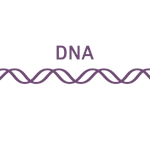The UC Davis Environmental Health Sciences awarded California National Primate Research Center (CNPRC) core scientist, Dr. Hong Ji their 2019-2020 scholar award. Her application to study epigenetics as the link between air pollutant exposures during development and long-term side effects on the lungs will significantly contribute to our knowledge of how particulate matter in our environment affects human health. As a tenure track assistant professor from school of Veterinary Medicine, Ji’s work at the CNPRC mainly focuses on epigenetic regulation of childhood asthma and other respiratory diseases through a combined approach of human, rodent, and nonhuman primate (NHP) model, part of which is supported by her recently awarded R01 from National Institute of Health.
 Ji’s experiences with children’s asthma began in Cincinnati and revealed a field of study that combined her personal interests, her research interests, and her expertise perfectly. While research shows that environmental exposures can cause asthma and related symptoms, it is still unclear how a short period of exposure during critical developmental windows, like infancy, is capable of such long-term impacts. Ji’s focus on epigenetics could provide an opportunity to fill this gap in the field. Epigenetics itself has many definitions, but according to Ji, the gist is this, “the central dogma of molecular biology is essentially, DNA instructs the cell to produce protein for the cells to be functional…then, epigenetics [provides] a mechanism to tell how the genes, or DNA, are seen by the cells and whether the cell should express those proteins or not.”
Ji’s experiences with children’s asthma began in Cincinnati and revealed a field of study that combined her personal interests, her research interests, and her expertise perfectly. While research shows that environmental exposures can cause asthma and related symptoms, it is still unclear how a short period of exposure during critical developmental windows, like infancy, is capable of such long-term impacts. Ji’s focus on epigenetics could provide an opportunity to fill this gap in the field. Epigenetics itself has many definitions, but according to Ji, the gist is this, “the central dogma of molecular biology is essentially, DNA instructs the cell to produce protein for the cells to be functional…then, epigenetics [provides] a mechanism to tell how the genes, or DNA, are seen by the cells and whether the cell should express those proteins or not.”
Currently, Ji is working on her proposed pilot project supported by UC Davis Environmental Health Center specifically focused on understanding the difference in how cells of the CNPRC rhesus macaque monkeys exposed to wildfire smoke during infancy read DNA compared to monkeys who did not experience exposure during infancy. Her team will do this by collecting nasal epithelial cells that can be obtained from the inside of a monkey’s nose with a small brush and then growing these cells in a culture in the lab where their DNA will be examined for differences in readability, more specifically, methylation sites. This technique is minimally invasive and provides the possibility of direct comparison to humans who may have had experienced similar exposures.
Ji’s work at the CNPRC is an extension of research from CNPRC’s associate director of research, Dr. Lisa Miller. Dr. Miller has spent her time at the Primate Center developing and illustrating the effectiveness of a nonhuman primate model of respiratory disease. Together their work will broaden our understanding of how inhalation exposures to smoke and other pollutants during infancy can leave a long-term effect on respiratory health.
With the help of the EHS scholar award, specifically the resources provided by EHS and the mentoring program built into the award, Ji hopes to “establish a nationally recognized research program related to asthma and environmental epigenetics”. Ultimately, Ji aspires to make discoveries that will translate into preventative medicine, interventions, and treatments for asthma related conditions or more general negative impacts of air pollution.
Written by Logan Savidge
lesavidge@ucdavis.edu


